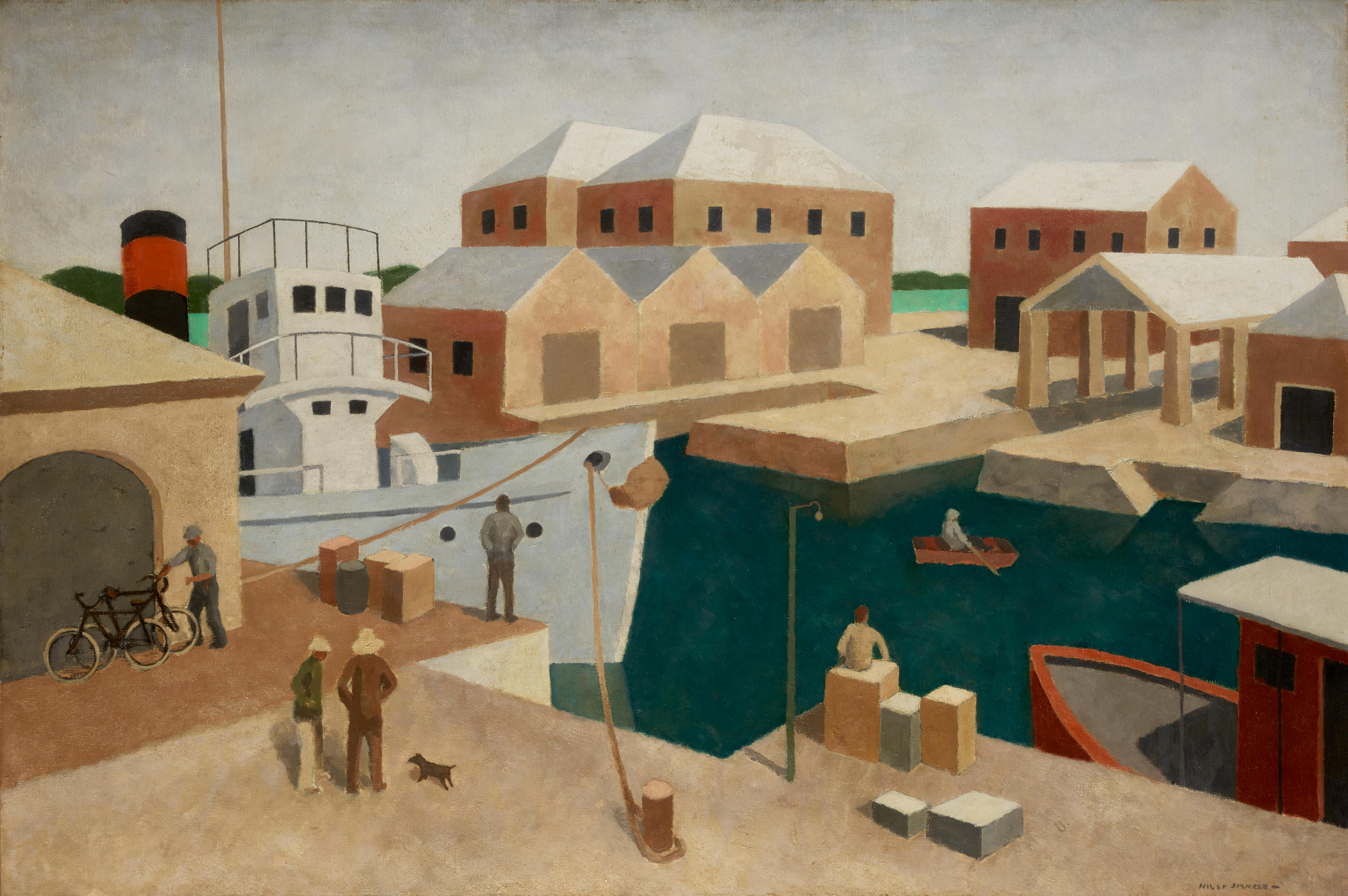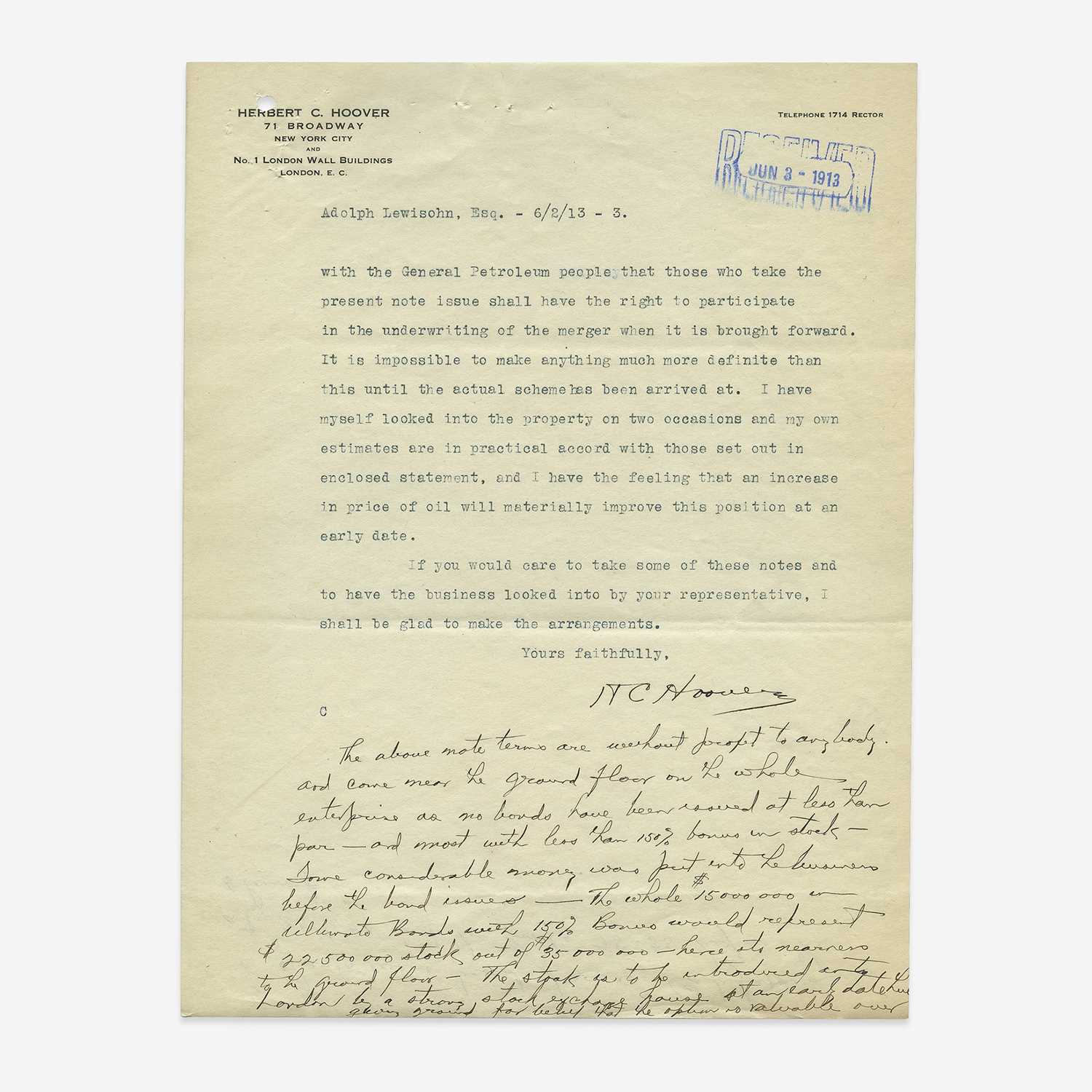World Court Correspondence, 2 vols. (77 items in two volumes) In the years after the First World War, Lewisohn developed a keen interest in supporting the League of Nations and the idea of a World Court as a means of providing nations with an alternative to warfare for resolving disputes. The staunch opposition of Republican isolationists in the Congress ensured that the World Court never received the full support of the U.S. This collection of correspondence to and from Lewisohn provides insight into his tactics for raising support for international peace efforts. Among the many letters to and from political mavens are sixteen addressed to U.S. presidents, past and present, most retained copies, with six letters in return: four from Calvin Coolidge (as president), one from Warren G. Harding (as president), and one from William Howard Taft (as justice of the Supreme Court).Although the letters are not particularly long, they provide important insight into the changes in international diplomacy in the U.S. after the Great War, with few of the politicians quite willing to tip their hat in a controversial matter, but all nevertheless revealing their position. In his letter, Harding thanks Lewisohn for his support for the International Court of Justice, writing optimistically about its prospects for approval: I do not know that there will be any specially organized movement to either enlist or create favorable public sentiment. The court proposition is so thoroughly in harmony with a policy which has been strongly proclaimed throughout the United States for more than twenty years that I have believed it need only be stated frankly and clearly to the American people to develop an overwhelming sentiment which will impel our cordial cooperation in making the court an agency of justice which will meet the best aspirations of the world today. May 10, 1923. For his part, Taft was more cautious: I am afraid the World Court has got to go over until the next Congress, but if they ever get to a vote, I feel a real hope that it will go through the Senate. I think that if you can influence any Senators on the subject, it would be good to do so. Given the current politicized nature of the Supreme Court (not that it was much better in the past), Taft’s reluctance to engage directly in political lobbying seems almost quaint: Of course I am on the Bench now and I have to avoid any activity that looks like politics, but you are not so restricted, and any influence that you can use I am sure will be most beneficial. Feb. 4, 1925. The meat of the collection consists of 61 letters from Senators, including copies of bills, that reveal the outlines of the debate and the extent to which: John B. Kendrick of Wyoming: It has always been my contention that this country, being the leading nation of the world, owes it to itself and to the world at large to occupy a place at the conference table that is becoming of its standing as a nation. In this connection I have felt that a Permanent Court of International Justice is at least a move in the right direction. Woodbridge Ferris of Michigan: I favor joining the League of Nations, with reservations; or the World Court, or any other international association that will contribute to world peace. Walter F. George of Georgia was more forthright: I am pleased to say that I shall support the World Court, the only measure now pending before Congress looking towards the settlement by peaceful means of International differences. Carter Glass of Virginia: I doubt if you could be more in favor of our joining the world court than I; but the men in the United States Senate who favor in whole the isolation which Mr. Hughes advocates in part seem determined to black all progress in the direction of effective international cooperation. George W. Norris of Nebraska: I did not, as you perhaps know, support the Versailles Treaty. I thought it was wicked and dishonorable. It provided for the selling out of our own friends, and wou
World Court Correspondence, 2 vols. (77 items in two volumes) In the years after the First World War, Lewisohn developed a keen interest in supporting the League of Nations and the idea of a World Court as a means of providing nations with an alternative to warfare for resolving disputes. The staunch opposition of Republican isolationists in the Congress ensured that the World Court never received the full support of the U.S. This collection of correspondence to and from Lewisohn provides insight into his tactics for raising support for international peace efforts. Among the many letters to and from political mavens are sixteen addressed to U.S. presidents, past and present, most retained copies, with six letters in return: four from Calvin Coolidge (as president), one from Warren G. Harding (as president), and one from William Howard Taft (as justice of the Supreme Court).Although the letters are not particularly long, they provide important insight into the changes in international diplomacy in the U.S. after the Great War, with few of the politicians quite willing to tip their hat in a controversial matter, but all nevertheless revealing their position. In his letter, Harding thanks Lewisohn for his support for the International Court of Justice, writing optimistically about its prospects for approval: I do not know that there will be any specially organized movement to either enlist or create favorable public sentiment. The court proposition is so thoroughly in harmony with a policy which has been strongly proclaimed throughout the United States for more than twenty years that I have believed it need only be stated frankly and clearly to the American people to develop an overwhelming sentiment which will impel our cordial cooperation in making the court an agency of justice which will meet the best aspirations of the world today. May 10, 1923. For his part, Taft was more cautious: I am afraid the World Court has got to go over until the next Congress, but if they ever get to a vote, I feel a real hope that it will go through the Senate. I think that if you can influence any Senators on the subject, it would be good to do so. Given the current politicized nature of the Supreme Court (not that it was much better in the past), Taft’s reluctance to engage directly in political lobbying seems almost quaint: Of course I am on the Bench now and I have to avoid any activity that looks like politics, but you are not so restricted, and any influence that you can use I am sure will be most beneficial. Feb. 4, 1925. The meat of the collection consists of 61 letters from Senators, including copies of bills, that reveal the outlines of the debate and the extent to which: John B. Kendrick of Wyoming: It has always been my contention that this country, being the leading nation of the world, owes it to itself and to the world at large to occupy a place at the conference table that is becoming of its standing as a nation. In this connection I have felt that a Permanent Court of International Justice is at least a move in the right direction. Woodbridge Ferris of Michigan: I favor joining the League of Nations, with reservations; or the World Court, or any other international association that will contribute to world peace. Walter F. George of Georgia was more forthright: I am pleased to say that I shall support the World Court, the only measure now pending before Congress looking towards the settlement by peaceful means of International differences. Carter Glass of Virginia: I doubt if you could be more in favor of our joining the world court than I; but the men in the United States Senate who favor in whole the isolation which Mr. Hughes advocates in part seem determined to black all progress in the direction of effective international cooperation. George W. Norris of Nebraska: I did not, as you perhaps know, support the Versailles Treaty. I thought it was wicked and dishonorable. It provided for the selling out of our own friends, and wou


.jpg)
.jpg)
.jpg)
.jpg?w=400?width=1600&quality=70)









Testen Sie LotSearch und seine Premium-Features 7 Tage - ohne Kosten!
Lassen Sie sich automatisch über neue Objekte in kommenden Auktionen benachrichtigen.
Suchauftrag anlegen